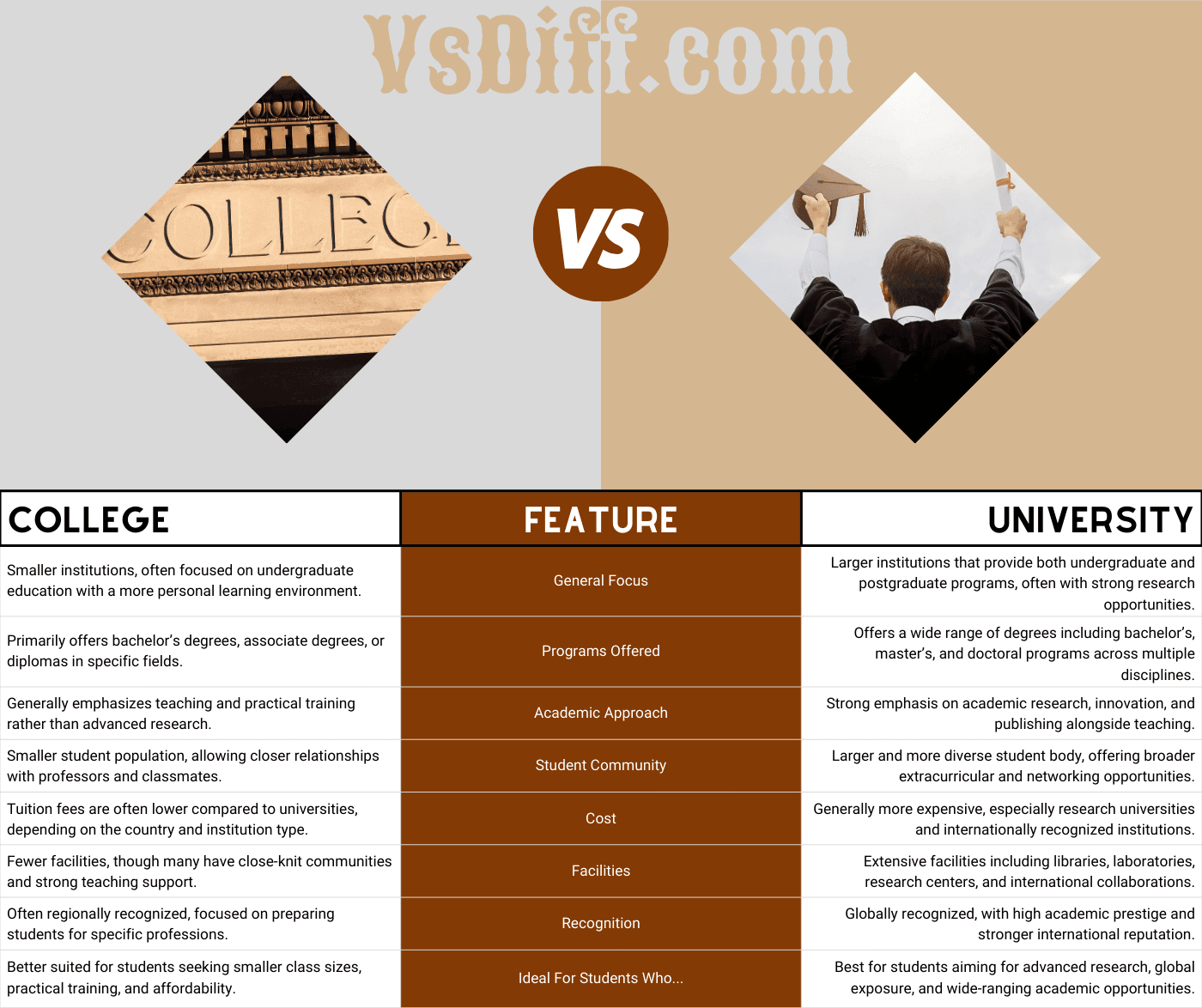
When deciding on higher education, students often wonder about the difference between a college and a university. While both provide academic opportunities, they differ in size, programs, research focus, and overall recognition. This guide highlights the main distinctions between colleges and universities to help you choose the right path for your education and career.
| College | Feature | University |
|---|---|---|
| Smaller institutions, often focused on undergraduate education with a more personal learning environment. | General Focus | Larger institutions that provide both undergraduate and postgraduate programs, often with strong research opportunities. |
| Primarily offers bachelor’s degrees, associate degrees, or diplomas in specific fields. | Programs Offered | Offers a wide range of degrees including bachelor’s, master’s, and doctoral programs across multiple disciplines. |
| Generally emphasizes teaching and practical training rather than advanced research. | Academic Approach | Strong emphasis on academic research, innovation, and publishing alongside teaching. |
| Smaller student population, allowing closer relationships with professors and classmates. | Student Community | Larger and more diverse student body, offering broader extracurricular and networking opportunities. |
| Tuition fees are often lower compared to universities, depending on the country and institution type. | Cost | Generally more expensive, especially research universities and internationally recognized institutions. |
| Fewer facilities, though many have close-knit communities and strong teaching support. | Facilities | Extensive facilities including libraries, laboratories, research centers, and international collaborations. |
| Often regionally recognized, focused on preparing students for specific professions. | Recognition | Globally recognized, with high academic prestige and stronger international reputation. |
| Better suited for students seeking smaller class sizes, practical training, and affordability. | Ideal For Students Who… | Best for students aiming for advanced research, global exposure, and wide-ranging academic opportunities. |
Frequently Asked Questions (FAQ)
Is a college the same as a university?
No. A college is usually smaller and focused on undergraduate programs, while a university offers a broader range of degrees, including postgraduate and research opportunities.
Which is more prestigious, college or university?
Universities generally have higher international recognition and prestige due to their research output, size, and global collaborations.
Are tuition fees cheaper in colleges compared to universities?
Yes, colleges are often more affordable, while universities—especially research-focused ones—tend to charge higher tuition fees.
Which should I choose: college or university?
If you prefer smaller classes, affordability, and a practical focus, a college may be best. If you seek advanced research, diverse programs, and global exposure, a university is the better option.
Do all countries use the same meaning for college and university?
No. In the United States, “college” and “university” are often used interchangeably. In other countries, the distinction is clearer, with universities offering advanced research programs.